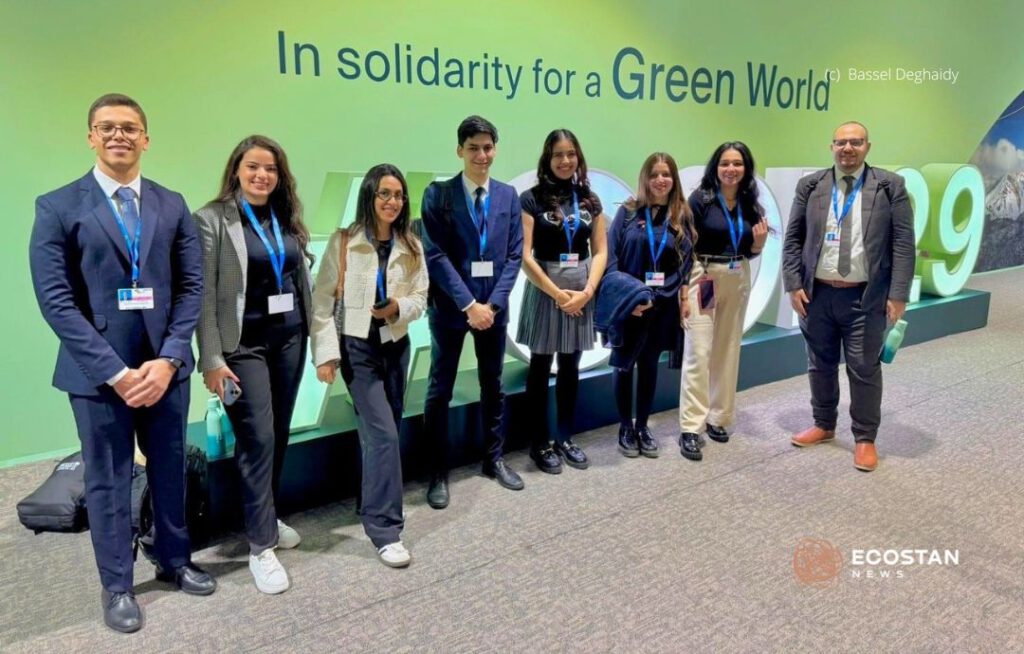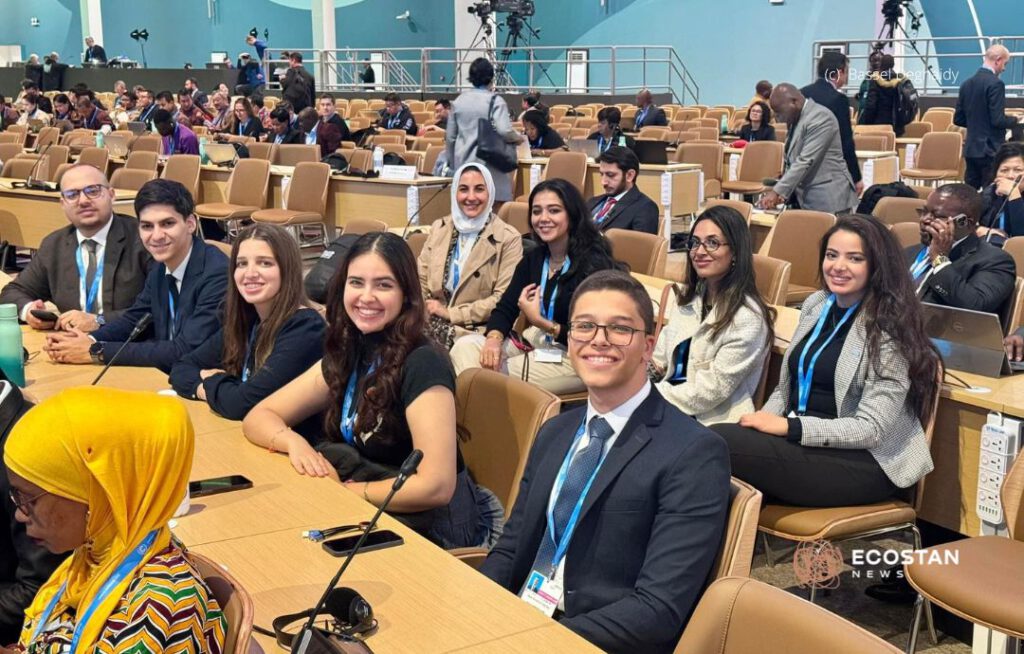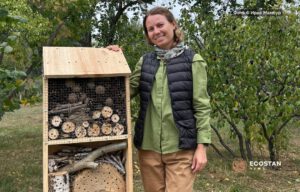In 2022, Egypt hosted the 27th Conference of Parties to the UN Framework Convention on Climate Change (COP27). This conference showcased Egypt’s leadership in global climate action and inspired Bassel Deghaidy, a 20-year-old engineering student at the British University in Egypt and the UN PRME Regional Leader for Africa, to delve deeper into climate negotiations. This is the story of one of the nine youth climate negotiators commissioned by Egypt to COP29, the 29th Conference of Parties, held in Baku, Azerbaijan, from November 11 to 24, 2024.
Why are we sharing this experience? Many young women and men from Central Asia are deeply interested in and committed to climate advocacy, both within their countries and on the global stage. However, they often struggle to find meaningful opportunities to channel their efforts. Even when they make it to climate summits, their contributions are often confined to national pavilions, which—let’s be honest—have little to do with the actual climate negotiations.
At the same time, official delegations from our region often lack the capacity to effectively follow, let alone influence, these negotiations. This is where our governments and climate activists can take inspiration from the Egyptian experience. At the same time, official delegations from our region often lack the capacity to effectively follow these negotiations, let alone influence them. This is why our governments and climate activists can draw valuable lessons from the Egyptian case.
This is the story of Egyptian climate negotiator Bassel Deghaidy, as shared with us—Alimkhan Abulkhan from the student organization Climate for Us, based in Almaty, and Aliya Wedelich from Ecostan News.

Bassel Deghaidy: Being a youth negotiator at COP29 was both challenging and rewarding. It was an intense process—long hours and complex negotiations. However, the impact is immeasurable. We had the chance to be part of the Egyptian Delegation and participate in the negotiation meetings. The topic I followed at COP29 was Article 6 of the Paris Agreement.
This article mainly focuses on carbon markets and is divided into three parts: the first two parts (Articles 6.2 and 6.4) cover the carbon markets, while Article 6.8 deals with non-market approaches, such as financing and capacity building. At COP29, negotiators reached agreements on Articles 6.2 and 6.4, which was one of the key accomplishments of the summit.
Alimkhan: How did you become a youth negotiator from Egypt in this process?
Bassel: My journey began four years ago. I started preparing myself by participating in training programs like the six-month Oxford Net Zero program. I later became a certified carbon trainer through Nottingham Trent University and UN PRME. It took four years of dedication to truly understand the complexities of climate change. Along the way, I completed additional courses to deepen my knowledge of various aspects of the issue.
Once I felt adequately prepared, I applied to join Egypt’s National Youth and Climate Committee (EGYouth4Climate). From there, I was selected as one of nine Egyptian youth negotiators. This was the second time the Committee had formed such a delegation, and COP29 marked my first experience with actual negotiations—an incredible learning opportunity.

Aliya: How did your youth negotiators group coordinate with Egypt’s official delegation at COP29? Did they listen to you?
Bassel: As youth negotiators, we were part of the negotiation meetings. We worked hand in hand with our diplomats, learning directly from those with the most expertise and knowledge. It was truly an amazing experience because we were able to contribute meaningfully while gaining insights into the negotiation process.
Alimkhan: What should we, as climate activists, do now to prepare for COP30, which will take place next year in Brazil and is expected to be highly ambitious in its scope and goals?
Bassel: I believe my general advice would be to first familiarize yourself with the mechanics of climate negotiations. Understand the process, how it flows, and then choose a topic you’re passionate about. For me, it’s Article 6, which relates to carbon markets, climate mitigation, and finance.
Once you identify your area of interest, take courses on the topic, negotiation skills, and participate in conferences and forums like this one. As you go, build your knowledge and awareness. This approach can create meaningful impact for your country in your chosen field of expertise.
Alimkhan: Can you name any youth organizations one can join to amplify their voices in international climate negotiations?
Bassel: I’d immediately recommend YOUNGO, the official Children and Youth constituency of the UNFCCC. It brings together passionate climate advocates who do amazing work. Another great platform is PRME Global Students, which focuses on advocating for sustainable development and has a powerful impact. Lastly, participating in COP simulations is invaluable. The British University in Egypt, in collaboration with the United Nations Development Programme in Egypt and under the auspices of Egypt’s Ministry of Youth and Sports and Ministry of Higher Education and Scientific Research in Egypt, organizes COP Simulations that bring together 150 participants from around the world. I believe these three would be transformative for anyone looking to engage in climate negotiations on a global level.




